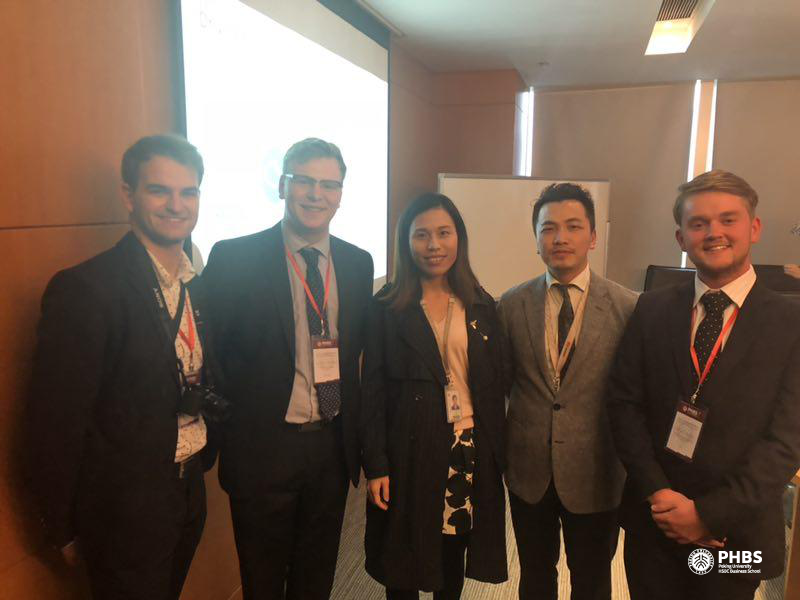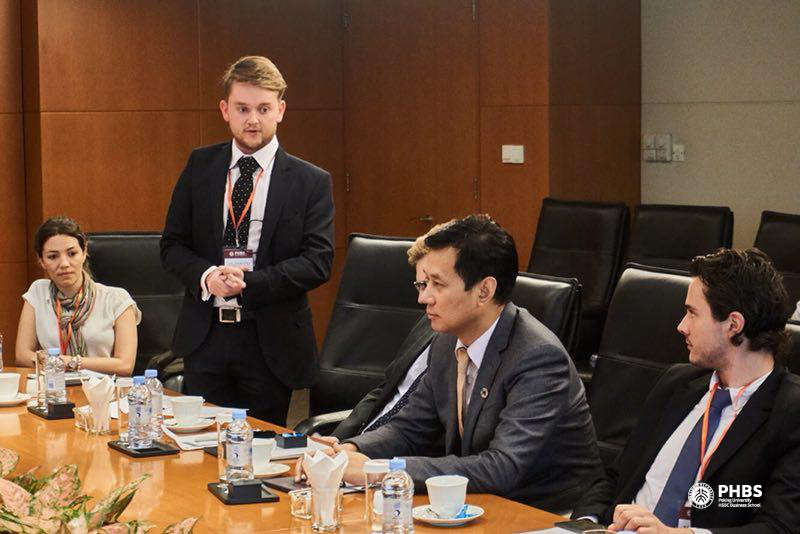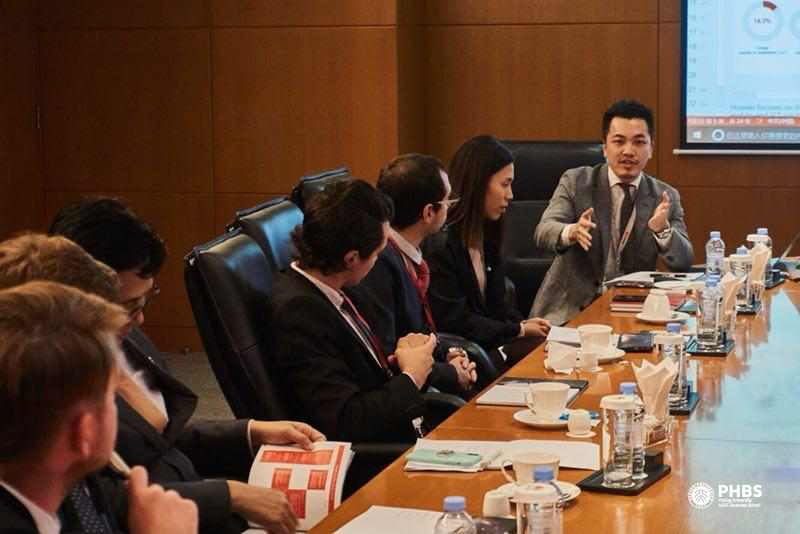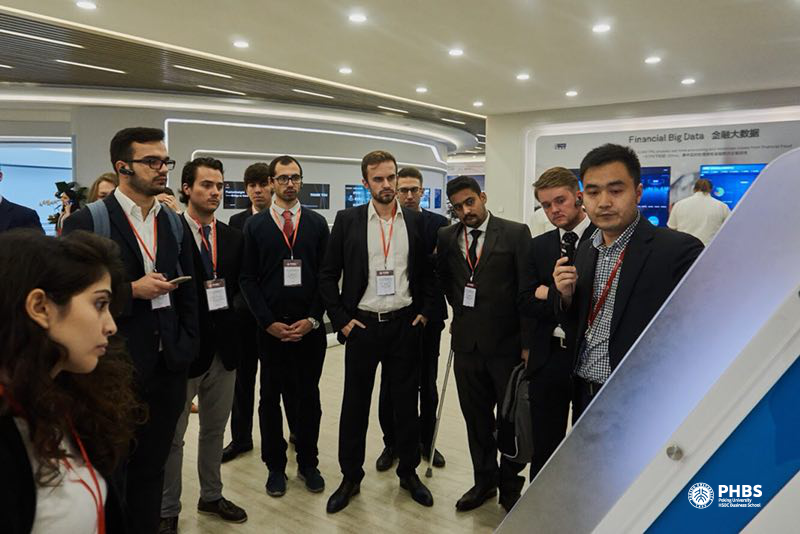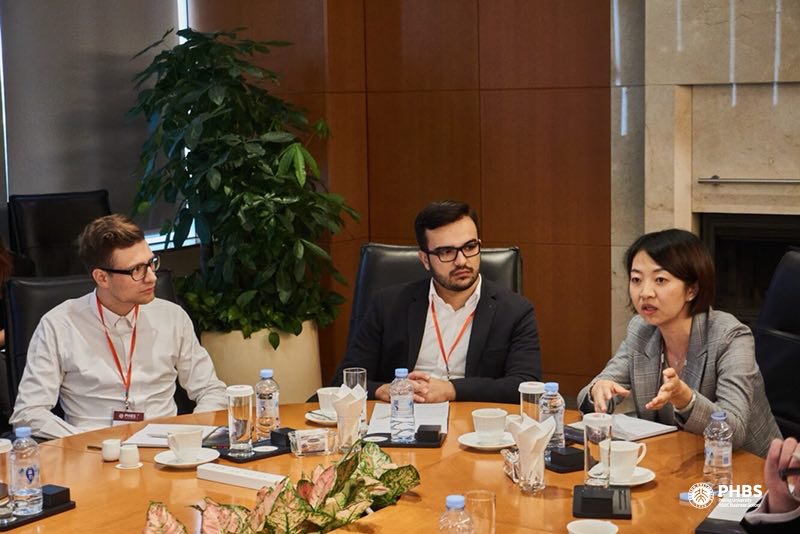Huawei surprised the world when it was announced in August that they replaced Apple as the second-largest producer of smartphones. What may come as an even bigger surprise is that if you think you know the company because you recognize their cell phones, you have hardly scratched the surface.
On the 28th of November, over 30 international students from the Peking University HSBC Business School’s (PHBS) “China Studies” course toured Huawei’s head office in Shenzhen to get an inside look.
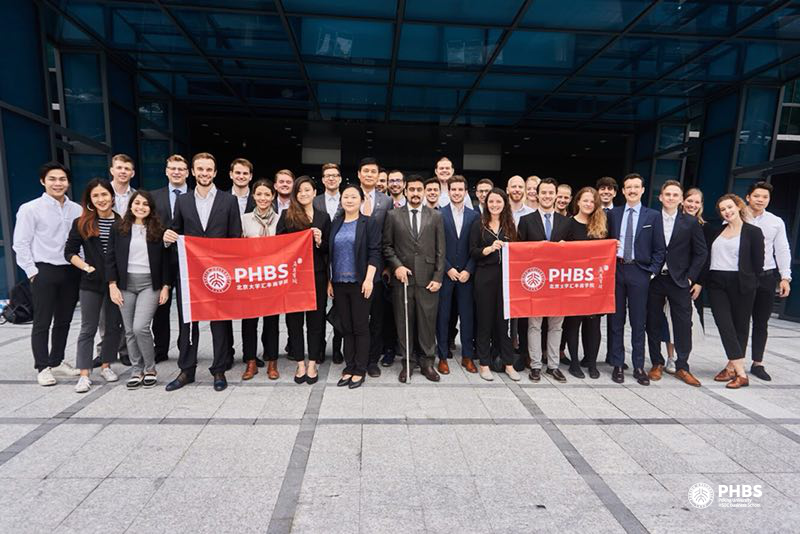
Professor Huang Haifeng’s “China Studies” course aims to give students a practical introduction to Chinese culture and business practices. Coursework is broken up into lectures from influential academics and field trips to six different firms. This collaboration between Huawei and PHBS is now in its sixth consecutive year.
Upon arrival, we were greeted with a warm welcome from Huawei staff before being ushered into Huawei’s Industry Solution showroom. We were introduced to a range of Huawei’s current initiatives, previous achievements and the company’s history.
The tour was simply fascinating. From its humble beginnings, Huawei has since grown to become one of the world’s largest companies with a presence in over 175 countries and 180,000 employees. Ranking 72nd on the Fortune 500 list, Huawei is the largest telecommunication-equipment manufacturer in the world.
“Huawei’s diversity truly took me by surprise,” exclaimed Cecilie Just, an exchange student from Denmark. The range of technology being produced from automated airport traffic control, solar power production, automated waste solution and clean water irrigation showed how innovative and robust Huawei has become. The students were particularly interested in Huawei’s development of a facial recognition system and how it was used in solving the kidnapping of a girl in under 24 hours. Huawei has been involved in many projects that have helped with the massive modernization of China over the last 40 years.
“Before the tour I thought Huawei only produced mobile phones! I had no idea that Huawei was involved in so many cutting edge fields!” said Kevin Piechatzek, an exchange student from Germany, “Everything from agriculture to power generation, airport traffic control to bank security measures.”
After the tour concluded, students were invited into a conference room and given a presentation on Huawei’s recent events and their future plans. Students were also given details about Huawei’s domestic and international projects. The presentation covered a wide variety of topics from Huawei’s research and development model to their contribution to the development of China’s booming technology sector.
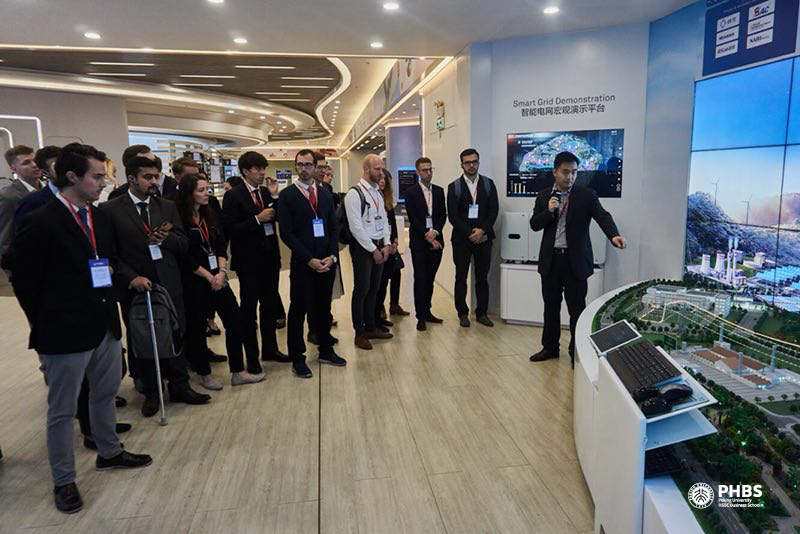
Following the end of the presentation, students were offered refreshments and invited to ask questions. Originally, only 30 minutes were allotted, but the time was extended to just under 2 hours due to the unprecedented number of questions. Students were particularly interested in Huawei’s global affairs, corporate social responsibility, newest smartphones, and the future of the firm. “The class visit to Huawei offered me a lot of meaningful insights about the ioT and Cloud eco-systems in China,” explained Oren Gilladi, an exchange student from Israel. “The opportunity to speak to senior employees of Huawei about the future opportunities and the challenges the company may face was truly fascinating and something a classroom education simply cannot offer you,” he added.
A fascinating topic discussed was Huawei’s ownership structure. Huawei is an employee owned company with the founder Ren Zhengfei only owning roughly 1.5% the remainder of the shares are given to Huawei employees with approximately 80,000 employees owning the other shares.
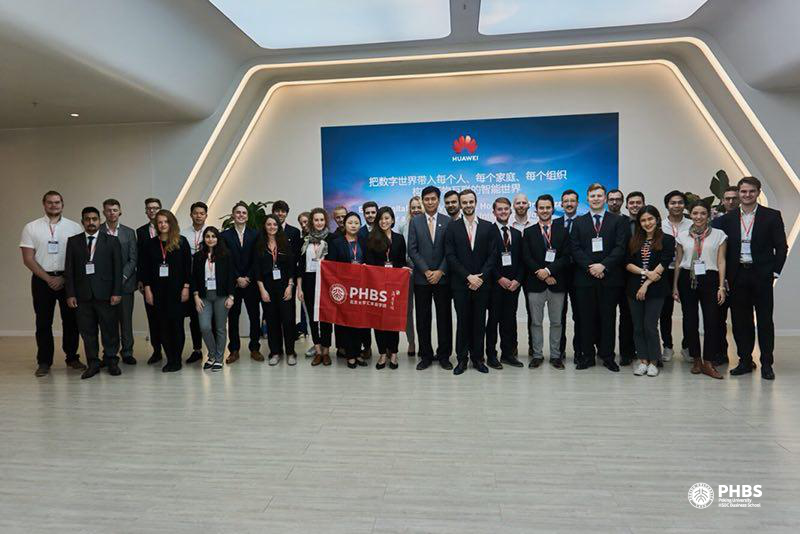
“It was an incredible experience to visit Huawei!” said Daniel Bonfil, a Master of Economics student from Mexico, “the trip helped me have a better understanding of their diversified business models that goes well beyond mobile phones and computers.” Each comment from a student seemed to suggest that because of the diversity of challenges and successes encountered at Huawei, there is knowledge from this trip they will be able to carry with them no matter what path they take in the future.






